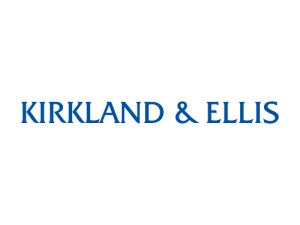In our next Expert Insight feature, we gain some thoughts into the energy sector in Canada. We hear from Rosa Twyman who is an energy regulatory lawyer and has exclusively practiced law in the energy industry since 2001.
You began your legal career in South Africa. What three major differences do you see in the way regulation is implemented in the energy industry in Canada?
There are great differences in the political and social systems, labour markets and where each country is located relative to the rest of the world. Canada’s political and social systems are mature and stable, and its labour is market highly educated. Geographically, Canada is in closer proximity and better connected to the United States and other major energy users. The rule of law is valued and upheld in Canada, to the extent that it can arguably be said to bog down approval of energy projects procedurally. South-Africa’s political and social systems remain unstable. Relative to the whole population, a smaller number of people are highly educated while South-Africa has also suffered a brain drain, because highly educated people have striven to find a safer environment to live in and provide for their families. South-Africa is less connected to larger consumption markets and is still known for corrupt practises, operating alongside formal requirements.
What kinds of firms do you mostly work with and what do they expect of you?
We represent energy industry clients in facility approvals. For example, large scale wind, electricity market rule development, and tolls and tariff matters on major pipeline infrastructure. The public interest informs many of the positions we take – developing energy resource and infrastructure in a responsible manner that results in net benefits when considering economic, environmental and social impacts.
How often to disputes in the energy sector resort to ADR in Canada, and in which cases is litigation absolutely unavoidable?
The matters we act on are in large part polycentric, involving many parties’ positions and interests. ADR does not play a major role in matters that require a balancing of so many different interests. What does happen is that in some instances parties are able to negotiate settlements and ask for subsequent regulatory approvals thereof and avoid litigation in this manner. In my experience, in the instances where ADR was used, it prolonged and complicated the proceedings since the focus shifted to procedural wrangling rather than dealing with the substantive issues.
As a leading expert in the field of oil & gas litigation, how would you advise firms best avoid litigation?
Regulatory proceedings are by nature forward looking. Clients obtain legal advice, not to win a legal proceeding, but to ultimately achieve an outcome or result that enables them to conduct their business. Working pro-actively with a client to identify regulatory risks, avoid them, mitigate them or somehow off-set potential negative impact(s) and therefore avoid or minimise a client having to tie up its resources both in time and money to use a legal process to achieve conducting its business, in my view, puts clients in the best possible position to do their “real” business.
What Supreme Court cases have you overseen throughout your career and how did you overcome the challenges therein?
I have acted on a matter related to an international transmission line. I loved doing the Supreme Court work. It may sound funny, but the most difficult part was summarising, within the page and word limits, five years of proceeding record and issues. As challenging as that was, it for sure forced getting to the relevant points. Page and word limits in all regulatory proceedings may help us focus better and think harder about what really matters.
Rosa Twyman
Legal Services and Business Director
403.930.7991
rosa.twyman@rlchambers.ca
www.regulatorylawchambers.ca
Rosa grew up in South Africa and was admitted to the South African Bar in 1997 starting her legal career as defence counsel in the South African criminal courts. Rosa moved to Calgary in 1999 and was admitted to the Alberta Bar in 2000. Rosa is an energy regulatory lawyer and has exclusively practiced law in the energy industry since 2001, first as commercial oil and gas litigation counsel, and then specializing as an energy regulatory lawyer in oil, gas and electricity matters.
In August 2008, Rosa Twyman founded the energy boutique regulatory law firm, Jeffrey, Twyman LLP Regulatory Law Chambers, with Paul Jeffrey, who was appointed as a Justice of the Court of Queen’s Bench in May 2009. The firm now carries on under the name Regulatory Law Chambers.




















